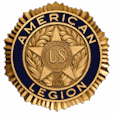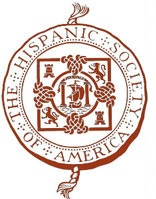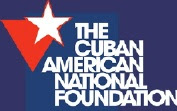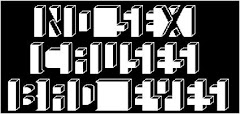 Opinion
OpinionOp-Ed Contributor
The Accidental Rebel
By PAUL AUSTER
Published: April 23, 2008
IT was the year of years, the year of craziness, the year of fire, blood and death. I had just turned 21, and I was as crazy as everyone else.
Skip to next paragraph
Paul Hoppe
 There were half a million American soldiers in Vietnam, Martin Luther King had just been assassinated, cities were burning across America, and the world seemed headed for an apocalyptic breakdown.
There were half a million American soldiers in Vietnam, Martin Luther King had just been assassinated, cities were burning across America, and the world seemed headed for an apocalyptic breakdown.Being crazy struck me as a perfectly sane response to the hand I had been dealt — the hand that all young men had been dealt in 1968. The instant I graduated from college, I would be drafted to fight in a war I despised to the depths of my being, and because I had already made up my mind to refuse to fight in that war, I knew that my future held only two options: prison or exile.
I was not a violent person. Looking back on those days now, I see myself as a quiet, bookish young man, struggling to teach myself how to become a writer, immersed in my courses in literature and philosophy at Columbia. I had marched in demonstrations against the war, but I was not an active member of any political organization on campus. I felt sympathetic to the aims of S.D.S. (one of several radical student groups, but by no means the most radical), and yet I never attended its meetings and not once had I handed out a broadside or leaflet. I wanted to read my books, write my poems and drink with my friends at the West End bar.
Forty years ago today, a protest rally was held on the Columbia campus. The issue had nothing to do with the war, but rather a gymnasium the university was about to build in Morningside Park. The park was public property, and because Columbia intended to create a separate entrance for the local residents (mostly black), the building plan was deemed to be both unjust and racist. I was in accord with this assessment, but I didn’t attend the rally because of the gym.
I went because I was crazy, crazy with the poison of Vietnam in my lungs, and the many hundreds of students who gathered around the sundial in the center of campus that afternoon were not there to protest the construction of the gym so much as to vent their craziness, to lash out at something, anything, and since we were all students at Columbia, why not throw bricks at Columbia, since it was engaged in lucrative research projects for military contractors and thus was contributing to the war effort in Vietnam?
Speech followed tempestuous speech, the enraged crowd roared with approval, and then someone suggested that we all go to the construction site and tear down the chain-link fence that had been erected to keep out trespassers. The crowd thought that was an excellent idea, and so off it went, a throng of crazy, shouting students charging off the Columbia campus toward Morningside Park. Much to my astonishment, I was with them. What had happened to the gentle boy who planned to spend the rest of his life sitting alone in a room writing books? He was helping to tear down the fence. He tugged and pulled and pushed along with several dozen others and, truth be told, found much satisfaction in this crazy, destructive act.
After the outburst in the park, campus buildings were stormed, occupied and held for a week. I wound up in Mathematics Hall and stayed for the duration of the sit-in. The students of Columbia were on strike. As we calmly held our meetings indoors, the campus was roiling with belligerent shouting matches and slugfests as those for and against the strike went at one another with abandon. By the night of April 30, the Columbia administration had had enough, and the police were called in. A bloody riot ensued. Along with more than 700 other people, I was arrested — pulled by my hair to the police van by one officer as another officer stomped on my hand with his boot. But no regrets. I was proud to have done my bit for the cause. Both crazy and proud.
What did we accomplish? Not much of anything. It’s true that the gymnasium project was scrapped, but the real issue was Vietnam, and the war dragged on for seven more horrible years. You can’t change government policy by attacking a private institution. When French students erupted in May of that year of years, they were directly confronting the national government — because their universities were public, under the control of the Ministry of Education, and what they did initiated changes in French life. We at Columbia were powerless, and our little revolution was no more than a symbolic gesture. But symbolic gestures are not empty gestures, and given the nature of those times, we did what we could.
I hesitate to draw any comparisons with the present — and therefore will not end this memory-piece with the word “Iraq.” I am 61 now, but my thinking has not changed much since that year of fire and blood, and as I sit alone in this room with a pen in my hand, I realize that I am still crazy, perhaps crazier than ever.
Paul Auster is the author of the forthcoming “Man in the Dark.”
http://www.nytimes.com/2008/04/23/opinion/23auster.html
comments (155)
Readers' Comments
"I graduated from the University of Virginia in 2007. No one in my generation seems crazy. What a pity."Tarra Kohli, Washington, D.C.









+(3).jpg)



.jpg)
+(3).jpg)


No comments:
Post a Comment